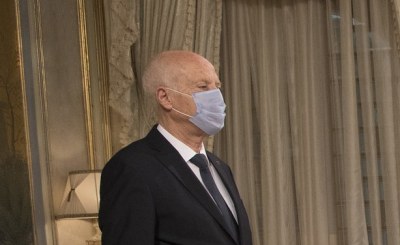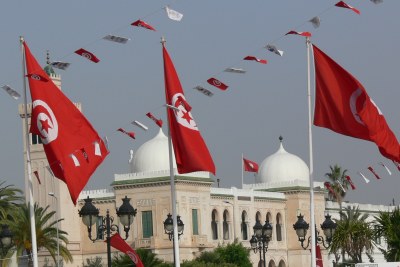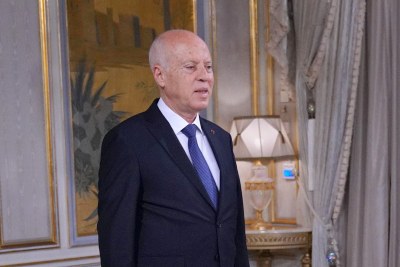-
Tunisia: Don't Let Tunisia's Democracy Slip
African Arguments, 30 August 2021
President Saied's sacking of the government may be popular, but what Tunisia needs is to strengthen its democracy, not dismantle it. Read more »
-
North Africa: Algeria Arrests Former Presidential Candidate in Tunisian 2019 Elections
Tunis Afrique Presse, 30 August 2021
The Public Prosecutor's Office at the Kasserine Court of First Instance, on Monday, ordered to place an individual in custody for allegedly having helped president of Qalb Tounes… Read more »
-
Tunisia: Organisations Denounce Extradition of Algerian Refugee Slimane Bouhafs to Algeria
Tunis Afrique Presse, 30 August 2021
Civil society organisations have expressed their indignation over the extradition of Algerian political refugee Slimane Bouhafs, who they say has been handed over by Tunisia to the… Read more »
Tunisia Cautioned on Democratic Process
On 25 July, President Kais Saied responded to protests against a tattered economy, endemic corruption and inept handling of the pandemic by sacking Prime Minister Hichem Mechichi, suspending parliament, stripping parliamentarians of immunity, and assuming judicial authority. Saied thus monopolised the three branches of power: legislative, executive and judicial.
In justifying these actions, he appealed to Article 80 of the constitution, which allows the president to take extraordinary measures in the case of "imminent danger".
Over a month on, Tunisia remains in limbo with no checks and balances on President Saied's power. He just announced an indefinite extension of the emergency period that was initially in place for 30 days. He has justified thia as a response to the demands of the people who called on the government to step down on 25 July.
President Saied's sacking of the government may be popular, but what Tunisia needs is to strengthen its democracy, not dismantle it, writes By Raed Ben Maaouia for African Arguments.
InFocus
-
In the first month since his assumption of exceptional powers, Tunisian president Kais Saied has overseen the widespread use of "unlawful and arbitrary" travel bans. Amnesty ... Read more »
-
Two parliament members in Tunisia have been arrested, according to a statement from an opposition party. RFI reports that Maher Zid and Mohamed Affes of the Islamis Al-Karama party ... Read more »






